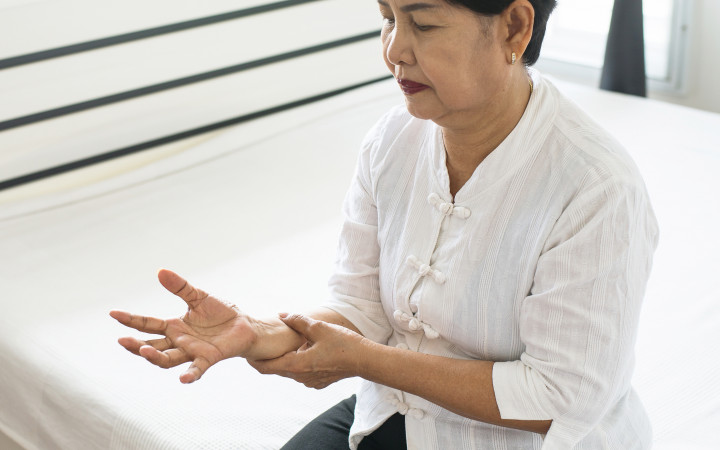Today’s Wonder of the Day was inspired by Will. Will Wonders, “What is alien hand syndrome?” Thanks for WONDERing with us, Will!
Let’s start today’s Wonder of the Day with a quick exercise. Ready? Okay, first, raise your hand. Now, put it back down. Hold up one finger. Now two fingers. Now three! Ball your hand into a fist, and then lay it flat on a table or your lap.
Now comes the real test. Watch your hand, and wait for it to move on its own. No cheating! Don’t move your hand—instead, wait to see what it chooses to do.
What happened? Did your hand move? More than likely, no. After all, limbs rarely move on their own. The exception is medical conditions that can cause parts of the body to move uncontrollably, like Tourette’s Syndrome. Another example is alien hand syndrome (AHS).
What is alien hand syndrome? You may have heard it called anarchic hand syndrome. It’s a very rare condition in which part of the body—commonly a hand—seems to move with a mind of its own. The movements caused by AHS are different from the tics associated with Tourette’s because they always seem to have a purpose.
For example, a hand affected by AHS might reach out and grab a cup of tea without its owner knowing. It might pet a cat or touch a piece of artwork without permission. It might even withhold something its owner wants or, in some cases, attack the body it’s connected to.
What causes AHS? In many cases, it starts after a patient has surgery on a part of their brain called the corpus callosum. The nerves in this region help the two sides of the brain communicate with each other. Rarely, AHS is caused by stroke, trauma to the brain, or cancer.
Some experts believe the movements associated with AHS originate in the brain. But due to changes in the corpus callosum, different parts of the organ aren’t communicating with each other. That’s why the person doesn’t realize they’re moving.
Is there a cure for AHS? Not yet. Many people find it helpful to give their affected limb something to do, like squeezing a stress ball. Since the first case of AHS was identified in 1909, fewer than 50 others have been recorded. With further study, doctors may be able to learn more about the condition.
Are you or someone you know affected by alien hand syndrome? This condition can be very inconvenient, but thankfully, patients often learn strategies to limit the effect on their lives. Most learn they have little to fear from their alien limbs!
Standards: CCRA.R.4, CCRA.L.3, CCRA.L.6, CCRA.R.2, CCRA.R.10, CCRA.R.1, CCRA.R.2, CCRA.SL.1, CCRA.SL.2, CCRA.W.4, CCRA.W.7, CCRA.SL.1, CCRA.W.2, CCRA.W.9, CCRA.L.1, CCRA.L.2




